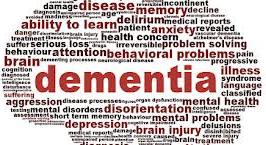
The aim of this Dementia Evidence Toolkit is to make all information publicly that is publicly available, available in a form that is clear and easy to understand for dementia patients, their families and unpaid carers as well as for staff working in health and social care. It will also benefit academics and those involved in decision-making both locally and nationally.
Launched at the beginning of August , the toolkit devised by Adelina Comas-Herrera, David McDaid, Professor Martin Knapp and colleagues, is the first of its kind globally, and is funded by the Economic and Social Research Council (ESRC). The Dementia Evidence Toolkit brings together more than 3,000 journal articles and 700 reviews of research studies in one place.
The toolkit is in the form of a comprehensive online database featuring the latest scientific evidence on what works in dementia care and treatment has been developed by the researchers at the Personal Social Services Research Unit, London School of Economics and Political Science (PSSRU at LSE).
Dementia is the fastest growing major cause of health-related disability across the world, and the health, social and economic impacts are increasing because of an ageing population. There are around 850,000 people in the UK with the condition, a figure expected to rise to 2 million by 2051. There are currently no cures for dementia which is associated with ongoing cognitive decline such as memory loss, problems with judgement and often some behavioural issues. Instead, the focus for healthcare services is on slowing down dementia progression using different care approaches.











 No access to BRIAN 5-6th February
No access to BRIAN 5-6th February Missing Persons Indicator Project Recruitment
Missing Persons Indicator Project Recruitment Celebrating our Research: Postgraduate Research Showcase 2026
Celebrating our Research: Postgraduate Research Showcase 2026 Nursing Research REF Impact in Nepal
Nursing Research REF Impact in Nepal Fourth INRC Symposium: From Clinical Applications to Neuro-Inspired Computation
Fourth INRC Symposium: From Clinical Applications to Neuro-Inspired Computation ESRC Festival of Social Science 2025 – Reflecting back and looking ahead to 2026
ESRC Festival of Social Science 2025 – Reflecting back and looking ahead to 2026 ECR Funding Open Call: Research Culture & Community Grant – Apply now
ECR Funding Open Call: Research Culture & Community Grant – Apply now MSCA Postdoctoral Fellowships 2025 Call
MSCA Postdoctoral Fellowships 2025 Call ERC Advanced Grant 2025 Webinar
ERC Advanced Grant 2025 Webinar Update on UKRO services
Update on UKRO services European research project exploring use of ‘virtual twins’ to better manage metabolic associated fatty liver disease
European research project exploring use of ‘virtual twins’ to better manage metabolic associated fatty liver disease